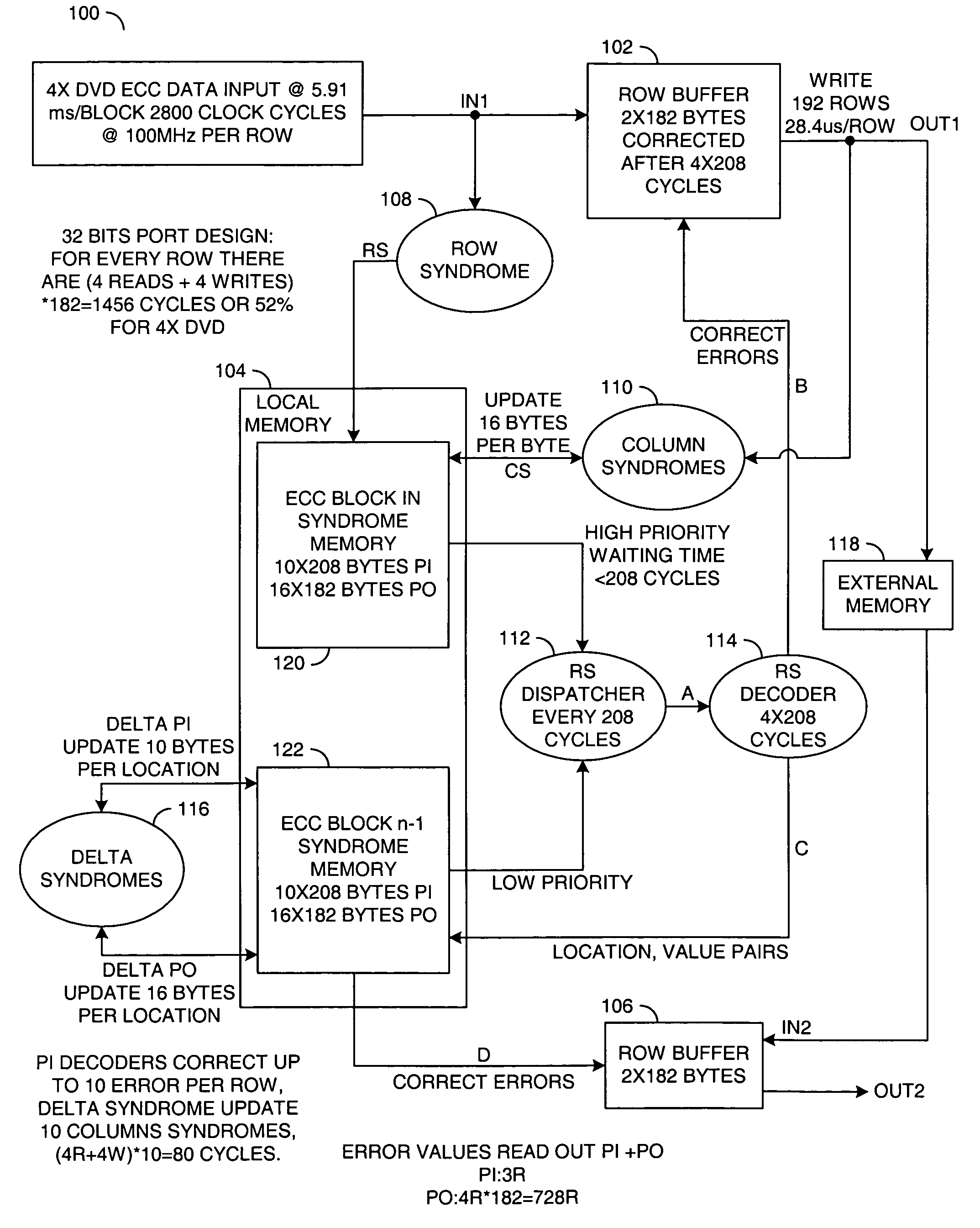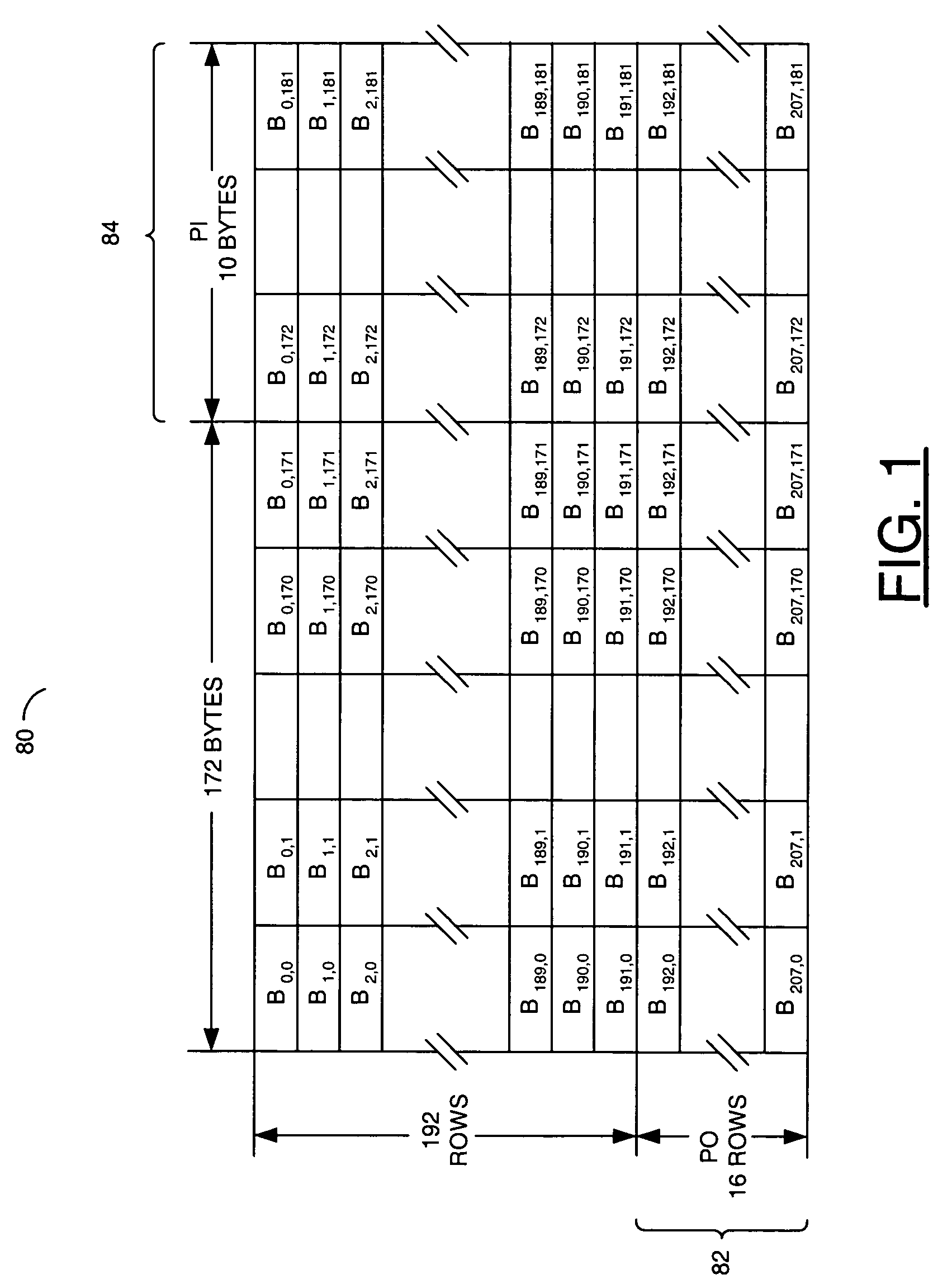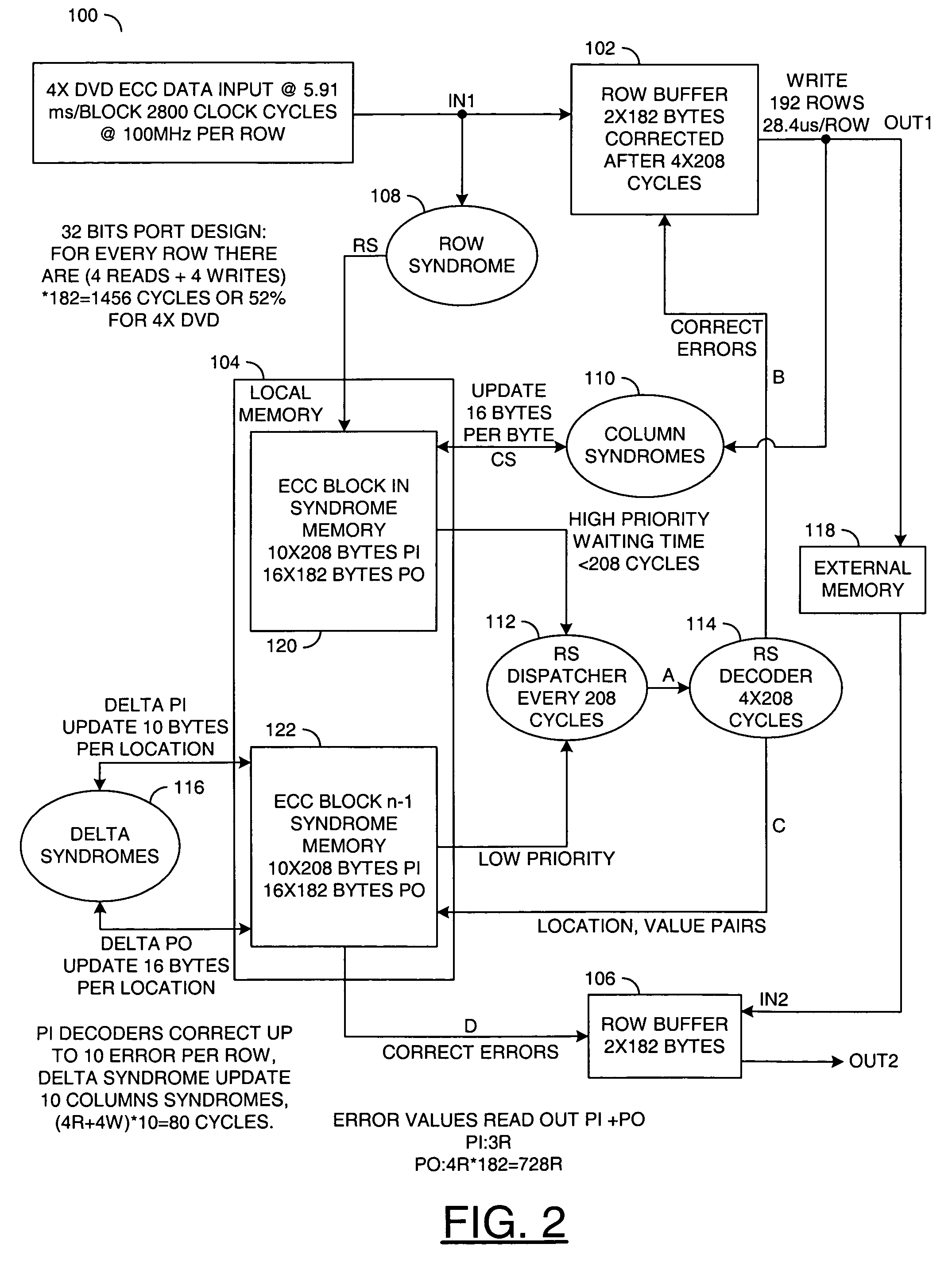Delta syndrome based iterative Reed-Solomon product code decoder
a technology of reed-solomon and code decoding, which is applied in the field of reed-solomon decoding, can solve the problems of consuming a large amount of memory bus bandwidth for storing all data bytes in external memory, and achieves the effects of reducing system cost, reducing memory bus bandwidth, and fast decoding
- Summary
- Abstract
- Description
- Claims
- Application Information
AI Technical Summary
Benefits of technology
Problems solved by technology
Method used
Image
Examples
Embodiment Construction
[0017]Reed-Solomon codes are generally used in Digital Versatile Disk (DVD) and Compact Disk (CD) applications. The Reed-Solomon codes are based on Galois Field (GF) codes. The GF codes may be implemented with a primitive polynomial of x8+x4+x3+x2+1 with an 8-bit (e.g., a byte) element. A generator polynomial is generally expressed as follows:
g(x)=(x+a0)(x+a1)( . . . )(x+aR−1) Eq. (1)
where R may be a number of parity bytes for the code and “a” may be a root of the primitive polynomial. A listing of common applications of the Reed-Solomon codes is provided in Table I as follows:
[0018]
TABLE IApplicationNKRDVD PI18217210DVD PO20819216CD C132284CD C228244CD P26242CD Q45432
The variable N may identify a total number of bytes in a row or column of the code, K may identify a total number of data bytes in the rows or columns and R=N−K. For an information packet of K bytes (e.g., B0, B1, B2, . . . , BK-1), parity bytes (e.g., PI and / or PO) may be generated as follows:
P(x)=(B0xK−1+B1xK−2+B2xK...
PUM
 Login to View More
Login to View More Abstract
Description
Claims
Application Information
 Login to View More
Login to View More - R&D
- Intellectual Property
- Life Sciences
- Materials
- Tech Scout
- Unparalleled Data Quality
- Higher Quality Content
- 60% Fewer Hallucinations
Browse by: Latest US Patents, China's latest patents, Technical Efficacy Thesaurus, Application Domain, Technology Topic, Popular Technical Reports.
© 2025 PatSnap. All rights reserved.Legal|Privacy policy|Modern Slavery Act Transparency Statement|Sitemap|About US| Contact US: help@patsnap.com



